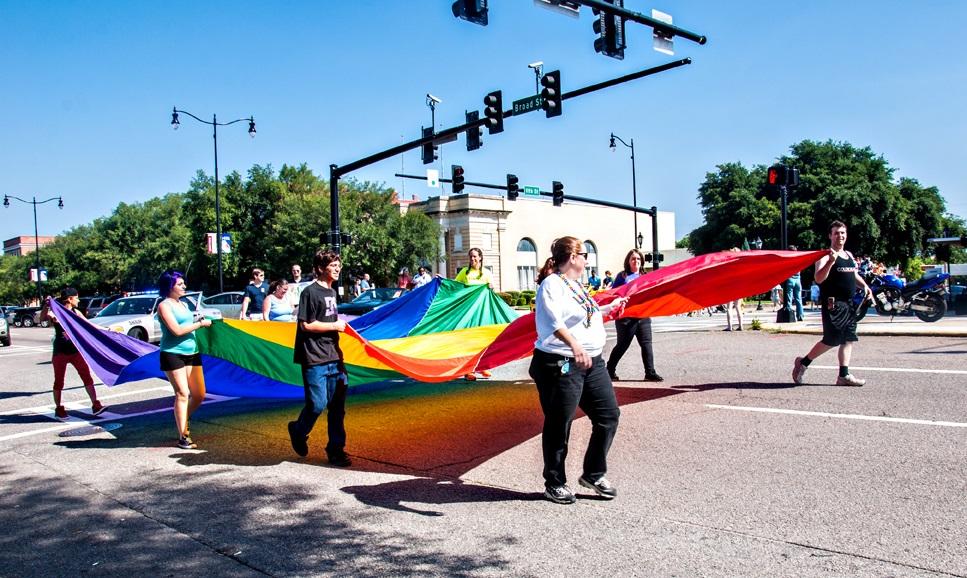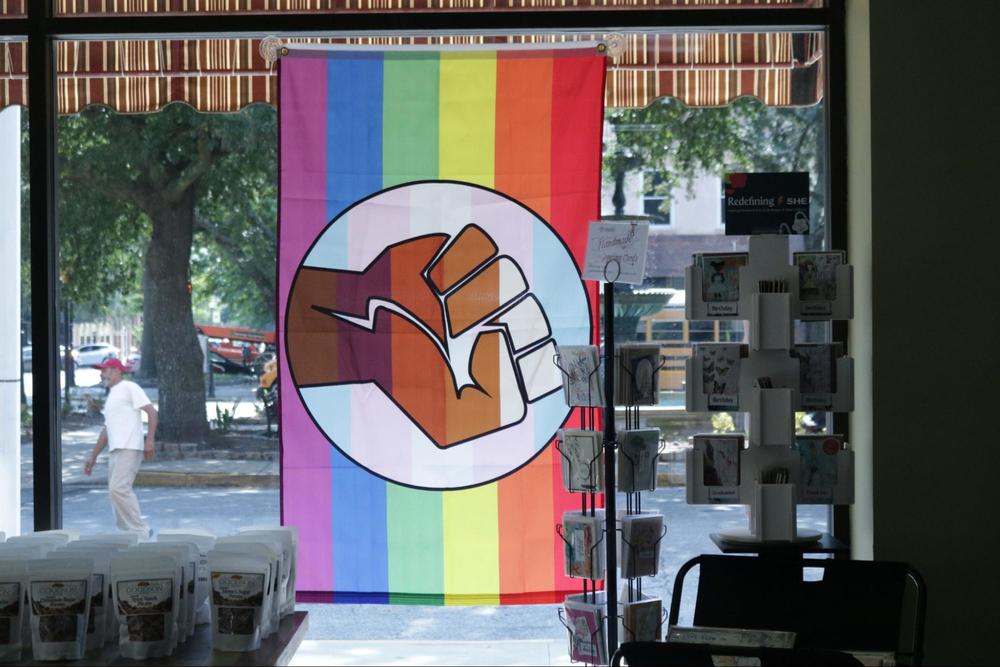Is Georgia on the brink of a human rights crisis, or is it safeguarding its cultural identity? Recent legislative actions curtailing LGBTQ+ rights have ignited a firestorm of controversy, placing the nation at odds with international partners and raising fundamental questions about its future trajectory.
The heart of the matter lies in a series of restrictive new laws approved by Georgian lawmakers, culminating in a third and final reading. These measures, ostensibly aimed at "family values and the protection of minors," introduce sweeping curbs on LGBTQ+ rights. The implications are far-reaching, potentially limiting freedom of expression, assembly, and the ability of non-heterosexual individuals to live openly and participate fully in society. This legislation has drawn strong condemnation from the European Union and the United States, who view it as a violation of human rights and a threat to Georgia's aspirations for European integration.
The political landscape in Georgia is complex, with a history marked by geopolitical tensions and internal struggles. The ruling party, "Georgian Dream," founded by the shadowy billionaire Bidzina Ivanishvili, faces an upcoming election. Critics argue that the new laws are a calculated move to garner support from conservative voters. The party's stated rationale for the restrictions is to shield Georgian children from what they term "western propaganda," echoing concerns voiced by the Georgian Orthodox Church, which has long advocated for regulations on LGBTQ+ expression.
The EU's reaction has been swift and decisive. Following the passage of the "foreign influence law," the EU halted Georgia's efforts to join the bloc, which began in 2022, and froze some financial support. Sanctions have also been imposed on government officials and parliament members, reflecting the EU's deep concern over the direction Georgia is taking. This has placed Georgia in a precarious position, caught between its stated desire for closer ties with Europe and the policies of its government.
| Aspect | Details |
|---|---|
| Core Issue | Restrictions on LGBTQ+ rights through new laws in Georgia. |
| Laws Overview |
|
| Key Players |
|
| International Reactions |
|
| Political Context |
|
| Justification (Georgian Dream) | Protecting children from "western propaganda" and upholding "family values." |
| Historical Context |
|
| Relevant Dates |
|
| Potential Impacts |
|
| Reference | Reuters: Georgian parliament approves LGBT rights curbs in final reading. |
The origins of these laws can be traced back to discussions within the Georgian parliament, which began in 2023. The discourse was heavily influenced by the Georgian Orthodox Church, which has been a vocal proponent of regulating what it perceives as LGBTQ+ propaganda. Proponents of the legislation often point to surveys, such as one by the American research firm Gallup, to suggest the potential impact of "LGBT propaganda."
The situation in Georgia is not entirely unique. The legal framework surrounding LGBTQ+ rights is continuously evolving, both in Georgia and globally. In the United States, significant progress has been made, particularly since the 2010s. Various states have enacted laws protecting LGBTQ+ individuals, though there is still no uniform legal protection across the entire nation.
In Atlanta, Georgia, the formation of the Atlanta Freedom Bands represents a different facet of this evolving landscape. The Atlanta Freedom Bands, including the concert band, the Metrognomes stage band, and the color guard, demonstrate the increasing visibility and acceptance of the LGBTQ+ community. These bands provide a platform for artistic expression and community building, reflecting a positive response to the need for representation within the larger society.
Looking ahead, the future of LGBTQ+ rights in Georgia remains uncertain. The current trajectory suggests a challenging path, one marked by the tension between tradition and modernity, between national sovereignty and international norms. Progress is undoubtedly being made on the global stage, but the road ahead remains long and complex, requiring ongoing dialogue, advocacy, and a commitment to human rights principles. The choices made by Georgia's leaders in the coming months and years will have a profound impact, not only on the lives of LGBTQ+ individuals within the country, but also on Georgia's place in the world.
The passage of these laws has reignited debates around freedom of expression, assembly, and the very definition of family and values. The long-term impact of this legislation is still unknown, but the EU has clearly communicated its stance, indicating that Georgias path toward European integration is now severely jeopardized. The decision to halt Georgia's efforts to join the EU and to freeze financial support sends a strong message of disapproval, highlighting the EU's commitment to human rights as a core principle. The imposition of sanctions on government officials and parliament members demonstrates the EU's resolve to hold those responsible for the laws accountable.
Critics of the laws also point out the potential for increased social division and the chilling effect on civil society. Restrictions on cultural events and public gatherings, such as pride marches, limit spaces for community building, advocacy, and the celebration of diversity. The emphasis on protecting children, while a valid concern, is seen by some as a guise to justify discrimination and limit the fundamental rights of LGBTQ+ individuals. The legislation raises questions about the balance between protecting vulnerable groups and respecting the rights of all citizens.
Georgian Dream's claim that these restrictions are necessary to protect Georgian children from "western propaganda" highlights the ongoing ideological struggle between the West and those who see it as a threat to their cultural or social identity. The rise of nationalism and populism in many countries has led to an increase in the protection of traditional values, and Georgia is not immune to this trend. This narrative has deep roots in the history of the country and resonates with significant segments of the population, making it a potent political tool.
The influence of the Georgian Orthodox Church is also a significant factor. The Church has played a central role in Georgian society and politics. Its views on family values and LGBTQ+ issues are deeply entrenched in Georgian cultural traditions. The Churchs advocacy for government regulation of LGBTQ+ expression further complicates the debate, providing moral authority to those who support the restrictions. The close relationship between the church and the ruling party also raises questions about the separation of church and state.
The situation is not without historical context. Georgia's relationship with Russia, including the brief war in 2008 over the breakaway province of South Ossetia, adds another layer of complexity. Georgia has consistently sought to align itself with the West and join the EU, which has been viewed as a strategic move to ensure its independence and security from Russia. The passage of these restrictive laws risks alienating Georgia from its allies, potentially making it more vulnerable to external pressures.
The implications of this legislation extend far beyond the borders of Georgia. The actions taken by the Georgian government are being closely watched by other countries in the region and internationally. The situation could embolden those who seek to restrict LGBTQ+ rights, or it might galvanize those who advocate for human rights. The outcome of the upcoming elections in Georgia, and the subsequent actions of the government, will be critical in determining the future of LGBTQ+ rights in the country. The EU, the US, and other international actors are likely to remain actively engaged, applying diplomatic and economic pressure to encourage Georgia to uphold its commitment to human rights.
The path forward is not clear. There is a possibility that Georgia will find itself increasingly isolated, with negative consequences for its economy, its international standing, and the well-being of its citizens. It is equally possible that the government will moderate its stance, either in response to international pressure or as a result of internal political dynamics. The ultimate direction Georgia takes will require a delicate balancing act, and the future of human rights and European integration in the country remains uncertain.
The developments in Georgia serve as a reminder of the importance of defending fundamental human rights, even in the face of complex geopolitical challenges. They underscore the need for open dialogue, mutual respect, and a commitment to the values of equality and inclusion.
The recent events in Georgia are also reflective of broader global trends. Around the world, there has been a surge in anti-LGBTQ+ legislation, as well as a rise in conservative and nationalist movements. These trends are interconnected, and the situation in Georgia offers an important case study of how these forces can intersect and shape domestic politics. The actions of the Georgian government have already generated a strong reaction from international institutions and organizations. It remains to be seen what steps will be taken, and what the ultimate outcome will be, in this crucial moment for the country's future.
The situation in Georgia underscores the need for vigilance and solidarity. It also requires recognizing that the struggle for human rights is not always linear. It is a complex, often contradictory process. The fight for LGBTQ+ rights and other fundamental rights in Georgia continues. It is a battle that will require the concerted efforts of civil society, the international community, and, ultimately, the Georgian people themselves.
/cloudfront-us-east-1.images.arcpublishing.com/gray/RZCTJ3M7FBENVOOY5G6THPMMPY.JPG)

